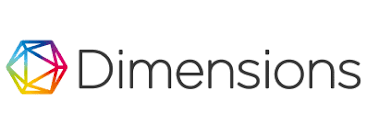Mrs Nichole Coffey
| Bio Statement |
500 Fast Cash Should You Refinance - Or Get A Line Of Credit? Credit and Refinance We all like to think we could pay cash for everything. We all like to believe that if we don't have the money to buy it now, we should simply wait. But the fact is, credit makes the world go around. Without it, demand dries up, commerce slows down to dangerous levels, and jobs are lost. So it is imperative that the credit wheels start turning again. And every effort is being made by the Federal Reserve -- now, at the lowest point of the global credit crisis -- to drive interest rates down so as to encourage individuals and businesses to start borrowing again. This could be good news for you -- if you know how to handle it. The question is this: should you refinance or should you go for a line of credit? Either option is widely available. What you need to do is make an informed decision about which is best for you. First, let's define our terms A line of credit (or revolving credit line) is a set amount that your lending institution advances you; you can borrow as much of that set amount as you like at any one time. The payback terms are pre-set and are based on the interest rate you get and the unpaid balance you have borrowed. Once you have paid it back in part or in full, you can borrow again, up to the limit set when you got the 500 fast cash long term payday installment loans easy payday loans. On the other hand, a refinance 500 fast cash quick loan no credit check is essentially what you get when you refinance your home mortgage loan and get cash out. The amount of cash you get is in relation to the home's current worth compared to what you have borrowed. How to decide which is best To make an informed decision on which form of credit is best for you, you should ask yourself two questions:
If the amount you need is relatively low (say, under $10 thousand) and you plan on paying it back quickly (less than a year) then a home equity line of credit is probably the most sensible choice for you. These types of loans are based on the adjustable nature of mortgage rates and are tied to the prime interest rate as set by the Federal Reserve. With this sort of credit line, you avoid the closing costs that a cash back mortgage refinance might charge you. This can often save you several thousands of dollars. Also, your lending institution will offer a lower interest rate overall when the rate is adjustable. Another benefit of of home equity credit lines is that you have more leeway on your monthly payments. In other words, you are only paying interest on the unpaid balance. If you only borrow part of the credit line, your monthly payments will be lower. The rest of your line of credit is still available without your having to pay interest on it. What if you need to borrow a substantially greater amount of money? What if you need to borrow upwards of $50 thousand or $100 thousand or more? If that describes you, then you should consider refinancing your mortgage with a cash back option. Generally with this sort of loan, you will get a first mortgage with your lending institution that is set for a 30 year payback. This means your monthly payments will be relatively low compared to a 15 year payback. However, be aware that you will pay much more in total interest charges over the life of the loan. In comparison, the customary home equity line of credit (a second mortgage) is set to pay back over a much shorter period, usually 10-15 years and the total amount of interest dollars paid is much lower. More things to consider If your current mortgage is at a low rate of interest, don't refinance it -- get a home equity line of credit instead. If your mortgage loan is a higher rate, check to see if lower rates are available to you. If so, a cash back refinance mortgage 500 fast cash direct lender personal loans for bad credit may be a better choice than a line of credit. And don't forget: whatever the interest rate, you will be paying closing costs when you refinance your mortgage loan. So factor that into your calculations. For example, if your closing costs are $3000 and you will be paying $100 less in monthly mortgage payments, that is a 30 month return on investment. Will you be staying in the home longer than that? If not, it may not make sense to refinance. In conclusion These are some of the customary ways that knowledgeable people make an informed decision about credit. Whatever you decide, make sure you understand them before you make a final decision. Ara Rubyan is like you: a consumer who has tried to educate himself on the full range of refinancing options available today. Now, he's put all his research (so far) in one convenient location and he's sharing it with you, no strings attached. Visit his website. You'll find: Go on over to Focus on Refinance and have a look. |
1.jpg)
.jpg)














